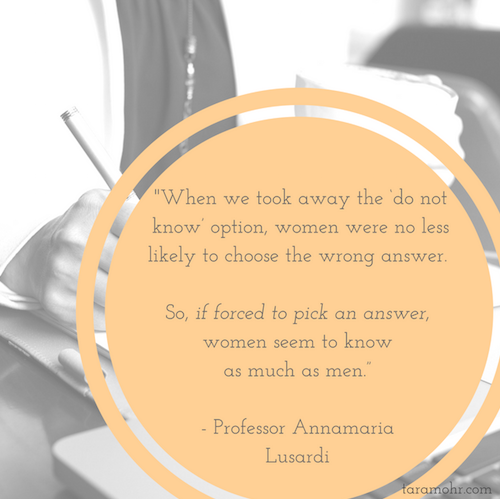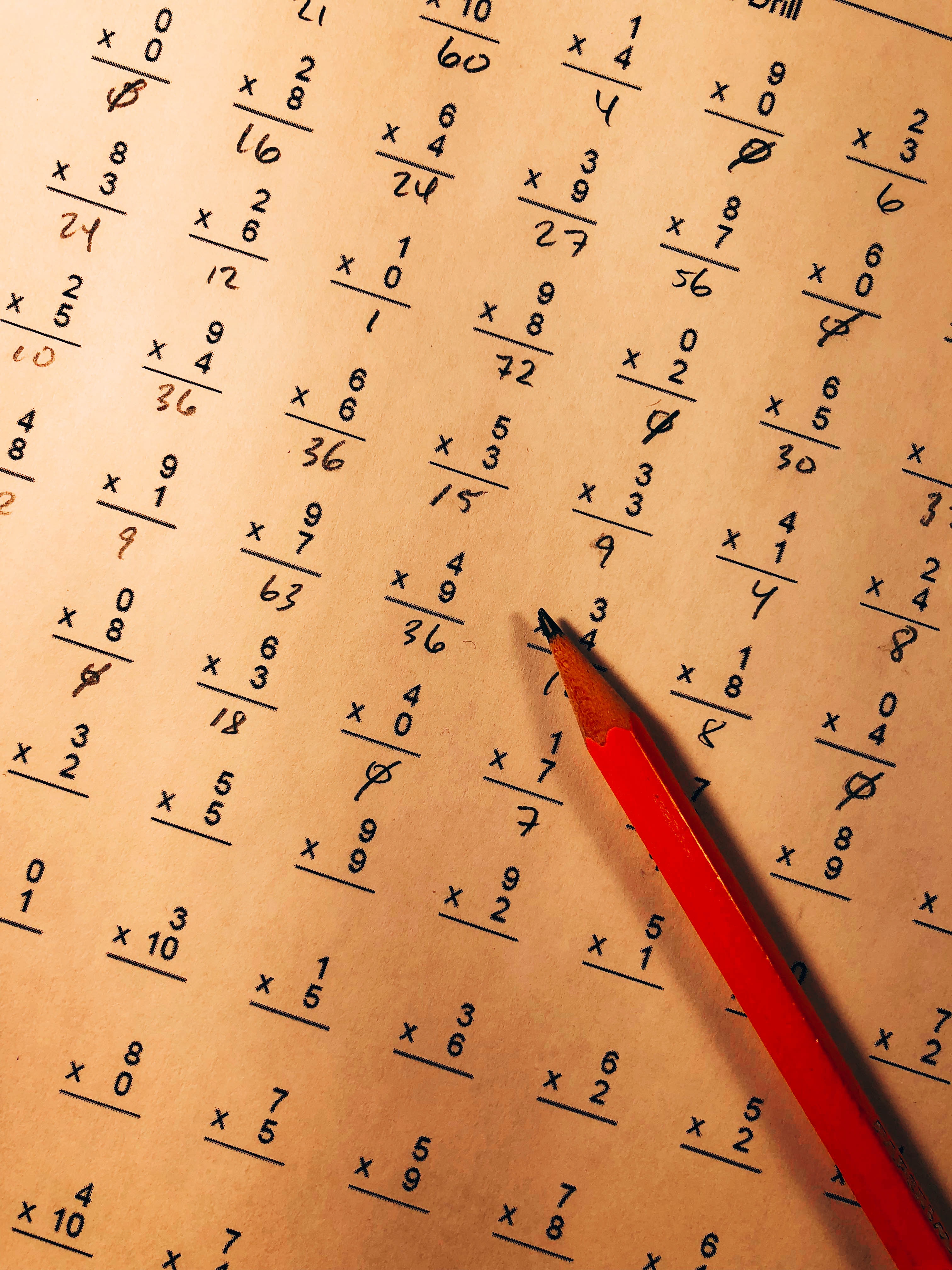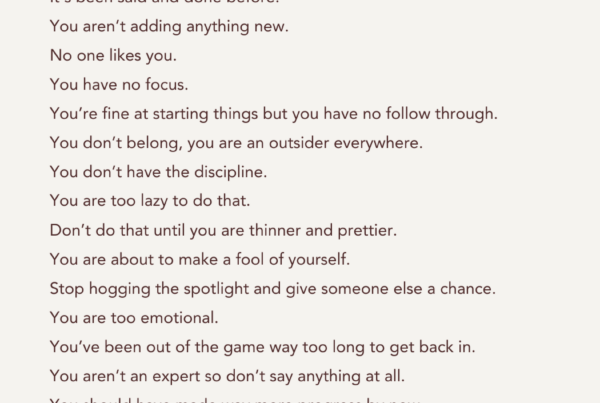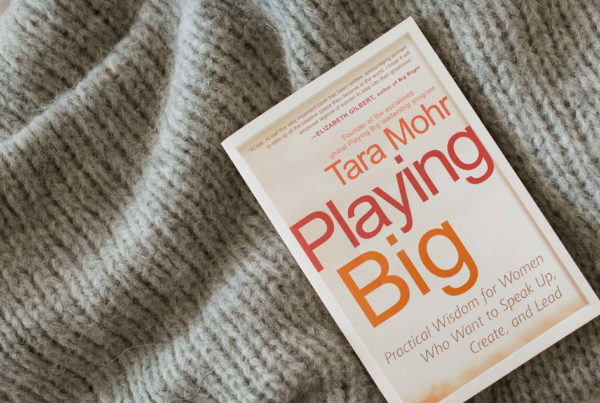You know that remarkable moment when you recognize yourself – your beliefs, your patterns, your life experience – in something you are reading?
A while back, I was reading about a study on financial literacy around the world.
Here’s what it found:
When researchers gave women and men a short quiz that tested their financial literacy, men did better. Not too shocking, right? Men are exposed to more informal financial education, and they are encouraged to learn about investing and money management. Women often are not.
But there was another part of the research findings that practically knocked me out of my chair.
“When we took away the ‘do not know’ option [from the multiple choice financial tests] women were no less likely to choose the wrong answer. So if forced to pick an answer, women seem to know as much as men,” Professor Annamaria Lusardi, one of the principal researchers, reported.
In other words, the gender gap in the test scores was a result of women choosing “I don’t know” more often than men. When that option was taken away, they performed just as well as their male counterparts.
They knew as much as the men, but they were less likely to trust what they knew. They were less likely to make a guess based on their leanings, their partial knowledge, or their hunches.
That was even true on this test, when (unlike in life) there was absolutely no penalty for making the wrong choice…no risk involved. Yet many women found it more comfortable to choose “I don’t know” than to venture a guess.

Sound familiar?
This is where I recognized myself, and so many women I know. We say, “I don’t know” when we do know. We say “I don’t know” when our knowledge may be partial, but it’s enough to point us in the right direction.
The reasons we do this, of course, are not that we are crazy or deficient in some way, or just not confident enough. The reasons have to do with what we’ve been taught, and what we’ve learned through our life experience.
Boys are taught to cover up anything that could be perceived as weakness or vulnerability; they start getting trained early on to hide uncertainty of all kinds.
At worst, this produces B.S. artists and unwise decisions. At best, it helps competent people lean into what they do know and move forward wisely in the face of uncertainty.
Girls, by contrast, are often socially validated for expressing confusion and uncertainty and turning outward for help and answers. Just think about the size of the “advice to women” industry compared to that of men.
Girls and women are also more likely to be penalized for being wrong. Bias – in women and men – causes women’s mistakes to be seen as more significant indicators of our capabilities than they are in a man. We learn quickly we may be judged harshly for being wrong, and so we become more conservative in speaking up if we aren’t sure about something we’re saying.
Self-Doubt
But for me, the core reason I choose “I don’t know” is that deeply felt sense that somehow, I am an intruder. I’m a visitor from a foreign land, in professional and intellectual life.
This is the well-documented “imposter syndrome” that women – especially high-achieving women – almost universally feel.
That feeling in us is not born of our individual life experiences, but of our strange and wondrous historical moment. Women are now being permitted to step into professional roles and leadership that we have never seen women take on before – roles that for several thousand years prior, society told us we were entirely unsuited for.
Nothing in our bodies, minds or hearts looks at the image of ourselves leading and says, “Oh yeah, of course, that’s for me. Of course, that’s what I’m meant to be. Of course, I’ll do fine.”
Yet you can run this experiment: What happens if you remove the “do not know” option for a while, just as the researchers removed it from their quiz? What if you push a little harder to see what answer you’d lean into if you had to just pick one?
Bottom line?
You know more than you think you do. And we need you to share it.
Love,
Tara
photo credit: Chris Liverani








Thank you, Tara, for continuously offering inspiring and uplifting words to move forward, or just to help us see our worlds.
Once again, your writing reads so truthfully and relevantly.
Perfect timing! Thanks a lot for this article, it totally resonates with me! I tend to focus on the one thing I don´t know while I do not even notice all the things I do know. Crazy… I like how you put the imposter syndrome into a historical context – it kind of takes away the pressure from us as an individuum and traces it back into the history we share as women. Good thoughts and a reminder to be gentler with myself and trust my gut and brain:-) Thanks!!
Hi Tara, another excellent piece with well-documented research and easy-to-follow actions! Thanks for sharing your precious Sunday with us by devoting to this article! Let’s all remind each other that “we do know the answer!”
Cheers,
Jin
This is wonderful. I agree with Marlise that the historical context applied to imposter complex is a unique and apt perspective.
Well said. I’m a male and I also say “I do not know.” I might ask, in effect, “What are the parameters of the question?” I am frustrated when anybody, male of female, pretends to know but doesn’t. Let’s expand the dialogue and when we detect BS, we ask a few questions to see if they do or don’t know what they are talking about. Unless the other person is in a power position, and I have to play nice, I just excuse myself from the conversation and leave. That other person is not worth my time.